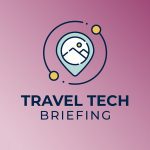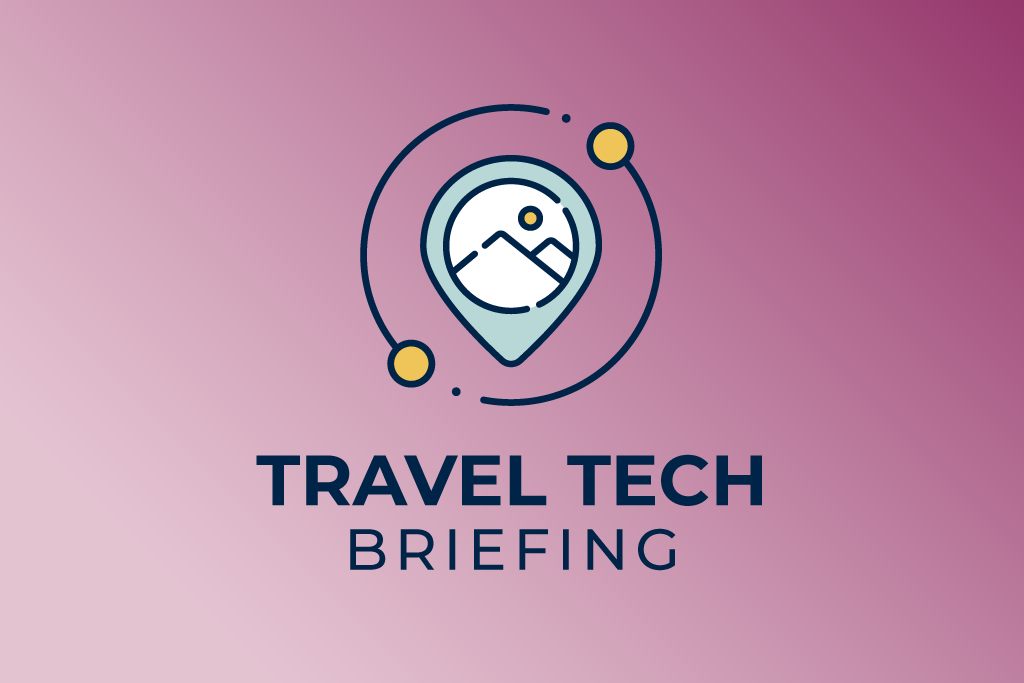Skift Take
At the big hotel-technology gathering, all roads still lead to Covid. Hoteliers have an even bigger staffing problem than many realize, booking data points to wary consumers, and the most-desired technologies are those that let us go back out into the world without engaging the people in it much.

Travel Tech Briefing
Editor’s Note: Exclusive reporting on technology’s impact on the travel industry, delivered every Thursday. The briefing will guide executives as they decide if their companies should “build, buy, or partner” to stay ahead.
Seemingly the whole travel technology industry descended on Orlando this week for the 50th annual Hospitality Industry Technology Exposition and Conference, or HITEC. After wandering through roughly 350 exhibitors, interviewing newsmakers and sitting in on panel sessions, here are some issues people raised that may be less appreciated than they need to be. They are familiar issues, but with new twists or insights.
Hotel Labor Shortages Are Even Bigger Than Most People Realize
Labor Department data say the hospitality industry is down by just 315,000 line-level workers since before the pandemic. That’s a big drop, but maybe not enough to explain all the distress calls from hoteliers. The real number to think about is 1.7 million, said Mike Blake, chief technology officer at the American Hotel and Lodging Association.
That’s how many jobs are open in the hotel industry, Blake told the conference’s kickoff forum. It’s a stunning number, since the Labor Department says the accommodations subsector only employed 1.7 million production and non-supervisory workers in February 2020. But it’s backed up by the government’s Job Openings and Labor Turnover Series, or JOLTS, which says the lodging subsector has 1.34 million openings.
Covid and the industry’s labor problems are obviously intertwined. After the industry shrank by almost 900,000 workers in a few months, hotels had to rehire fast as business normalized. But many workers had moved on. And the industry’s labor woes are driving many companies exhibiting at HITEC, he said.
One company Blake singled out is Virdee, a software-as-a-service company that automates guest check-in and check-out. Having raised $5 million in venture capital in March, bringing its total to $9 million, Virdee has deals with Virgin Hotels in Dallas and the Chicago Hotel Collection, among others. Companies like Hireology, which has raised nearly $60 million according to Crunchbase, and Hcareers are doing travel-tailored hiring software and platforms to find candidates and onboard them more efficiently, Blake said. And Texas-based Unifocus has been around for a while, but its automated scheduling and workforce performance software are more important than ever, he added. “They do really cool stuff.”
All sorts of companies are selling the labor-shortage theme. At least two exhibitors make keycards or key fobs that include panic buttons, which they say will let scarce housekeepers feel safer. “If one hotel has it and the other doesn’t, [the housekeepers] may go there,” said Aldo Fratta, vice president for hospitality of Philadelphia-based Roar for Good, which sells a wearable panic button system. He said 58% of housekeepers report having been sexually harassed at work. Roar raised a $1.8 million round of seed capital, among the earliest stages of venture capital, in March.
Panic buttons have been around since before Covid. But now the pitch is that they will help with worker retention — not just that protecting employees is the right thing to do.
The Industry Is Unnerved by Still-Heavy Last-Minute Booking
Amadeus, the global distribution service that has made inroads into other data services for travel companies, explained a trend that helps show why the industry is still nervous about the durability of this year’s recovery.
It turns out individual travelers are still booking unusually close to when they plan to hit the road. That raises concerns they will hit the brakes if the economy cools or inflation stays hot.
The share of consumer and non-group business travelers booking trips seven days or less before they leave is still near 60 percent week by week, said Katie Moro, vice president of hospitality data partnerships at Madrid-based Amadeus. That’s down from pandemic peaks around 70 percent, but still well above comfortable levels of about half of all individual travelers, she said.
The group business looks to be in better shape based on data from Demand 360, an Amadeus service that tracks 35,000 hotels, Moro said. A straw poll of corporate travel buyers released by Tripbam shows even they are delaying signing 2023 hotel contracts to see if this year’s inflation surge breaks before agreeing on prices for next year, however. In Amadeus’s data, early signs point to a consumer-driven Thanksgiving season that is at or close to 2019 levels. That’s the good news.
The less-good news is that industry jargon calls the length of time non-group travelers book in advance a “booking window,” Moro says. Markets where customers book with long lead times are called open windows, and a closed window means they’re waiting.
“The booking window is still shut,” she said.
Covid’s Long Tail Is Even Longer Than It May Look
To read the popular press, consumers are pretty much over their fear of Covid, wanting to travel and willing to take a little risk of infection. Travel is way up from 2020, with hotel occupancy about three percentage points below pre-pandemic levels in the U.S., and rising room and air ticket prices suggest they will pay for it. But vendors and consultants at HITEC are telling a different story.
One sign of caution is the emphasis from experts on kiosks, which are also a big part of a recent government tourism strategy released by the U.S. Commerce Department.
People want to be out in the world, but still a little distanced, argued Ted Horner, president of Australian tech consulting firm E. Horner & Associates. Along with staffing concerns that Blake raised, the expected rise of kiosk technology stems from people not wanting to spend time in line close to other people, Horner said.
“Covid worked to the benefit of kiosks,” Horner said. “We’ve all grown averse to queues.”
A similar conclusion came from a study released Monday by Oracle Corp., whose hospitality division is the market leader in hotel property management software. In a report done with Skift’s content marketing arm SkiftX, Oracle found 73 percent of travelers want lodging technology to minimize their contact with other guests and hotel staff. The report queried 5,000 consumers.
Contactless technologies are a higher consumer priority than almost anything else, Oracle found, trouncing trendy cybercurrency and virtual reality. Among hotel executives, they even polled better than cloud computing — one of Oracle’s top priorities.
Some customers even want to handle germy money less often, putting a new twist on filthy lucre. Or so said vendors pushing solutions to automate tipping. They argued that people carrying less cash are likelier to stiff hotel workers. “The pandemic was the worst thing that ever happened to the housekeeping staff,” said David Tashjian, CEO of Fort Lauderdale-based Tippy.
A lot of this represents people pushing what they sell, of course. That’s what HITEC is for. But all of it– the labor worries, hesitant consumers, and linking nearly every product to the pandemic — shows how Covid-traumatized the hotel sector remains.
The Daily Newsletter
Our daily coverage of the global travel industry. Written by editors and analysts from across Skift’s brands.
Have a confidential tip for Skift? Get in touch
Tags: coronavirus recovery, hotels, kiosks, labor, online travel newsletter, oracle, tourism, Travel Tech Briefing, travel trends
